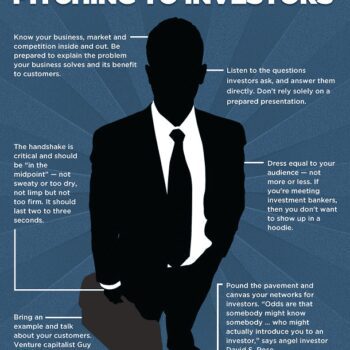Failure is a part of life. Nobody wants to fail, but it’s inevitable that we will. When it happens, we can either give up or learn from the experience. In the words of billionaire entrepreneur Bill Gates, “It’s fine to celebrate success but it is more important to heed the lessons of failure.” In other words, each and every failure can be a learning opportunity.
That’s all well and good, but when you’ve exhausted yourself trying to get your small business off the ground, it can be quite disheartening indeed to explore the concept of starting over. You’ve done everything you can to turn a profit. You’ve gotten financial and legal advice, you’ve tried new avenues of advertising and new approaches to marketing, but in the end nothing worked. ‘Where do I go from here?’ You may think. ‘I just don’t know if I have the energy to try this again.’
Calvin Coolidge once defined the difference between successful and unsuccessful people in a succinct, but profound way: it’s all about persistence. “Nothing in this world can take the place of persistence,” he said. “Talent will not: nothing is more common than unsuccessful men with talent. Genius will not; unrewarded genius is almost a proverb. Education will not: the world is full of educated derelicts. Persistence and determination alone are omnipotent.”
So, even if you can’t make your small business work, there’s no need to despair. In fact, history is full of successful individuals who were able to bounce back after a failure. Consider Thomas Edison, who says he didn’t fail 1000 times to create a working light bulb. Instead, he said he found 1000 ways that won’t work.
More recently, there’s the case of Ben Huh. At 22 years old, he founded a software analytics firm called Raydium. Investors forked over $750,000, only for his business to fail 18 months later. “You’re hopeful to the end, but we were flat out of money and couldn’t meet payroll,” he told Entrepreneur.
Like many business owners, Huh tried everything he could to make things work. In the end, however, Raydium simply couldn’t turn a profit. “These investors had put a fortune on their faith in me, and you feel like you should have rewarded their faith. You feel like you can’t do another company again.”
Huh certainly isn’t alone in feeling their business’s failure is a letdown to all of the people who helped make it happen. After all, it takes a lot of hard work, time, emotion, and money to make a startup work. What Huh eventually came to understand, however, is that investors understand that not all of their investments will be a success.
Six years went by and Huh bought the highly successful comedy blog I Can Haz Cheezburger. From there, he built a network of blogs that have proven to be highly successful. For Huh, starting over was a lot like getting back on a bicycle:
“You know how painful it can be, but you do it anyway,” he said. “I think you are better prepared, mentally and financially, but you never know if it’s going to be successful. That’s called maturity.”
Huh now operates a blog network with more than 25 million unique visitors and over half a billion page views per month. To date, he’s made more than $32 million from his venture.
Ben Huh is living proof that failing once doesn’t have to mean the end of an entrepreneur’s career. In fact, the opposite is true. Everybody is going to have some missteps and some failures, but it’s those who have the persistence to try again that ultimately succeed.
__________________________________
About the Author
This article was produced by Business Vibes. BusinessVibes is a free B2B social media network built for global trade professionals. Their goal is to connect like-minded businesses from all over the world.





























